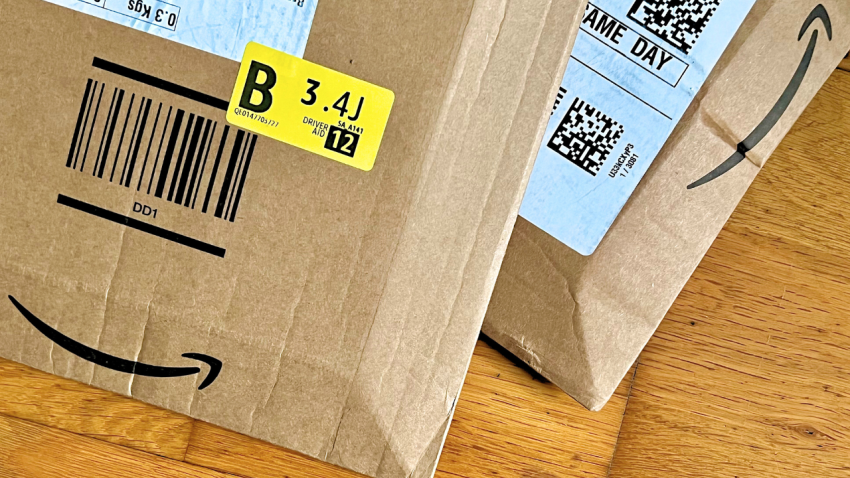There’s billions worth of unclaimed cash lying in dormant accounts
Could you have savings, pensions, investments or Premium Bonds, that you’ve forgotten about and can’t, for the life of you, find the paperwork to check?
You’re not alone. There’s between £15bn and £50bn of unclaimed assets in the UK, depending on what report you read.
And you could have even more sitting as credit, points or cashback in a number of other accounts you hold.
The good news is there are a number of ways to find lost money and they’re all free.
Some articles on the site contain affiliate links, which provide a small commission to help fund our work. However, they won’t affect the price you pay or our editorial independence. Read more here.
Find lost bank, savings and investing accounts
Current and savings accounts
A bank account is considered ‘dormant’ if it’s not been used. Different banks will have different rules.
For example, HSBC will freeze an ‘inactive’ account if no transactions have been made to or from the account in 12 months, if there’s still money in it. NatWest says an account is seen as dormant if it’s not been used in five years. With Barclays, it’s 15 years.
If you have an idea of where the money is held, it’s a good idea to contact the provider directly.
But if you think you’ve got a dormant current or savings account and can’t remember the provider, you can track it down using My Lost Account. The free service, run by banking trade body UK Finance, the Building Societies Association and National Savings & Investments (NS&I) covers 30 banks, 42 building societies and the full range of NSI accounts (including the old Post Office Savings Bank accounts).
You’ll need to set up a profile with an email address and password, verify your email address and complete the search form. You’ll be asked a few questions including whether the account was in your name, your date of birth, current contact address and previous addresses.
You’ll receive a response within 90 days by email.
My Lost Account only works when an account has been declared dormant – and you’ll need to have an idea of where the money is held. So if you don’t get positive results now, you can try again in a few years.
Premium Bonds
You can find lost Premium Bonds using My Lost Account, as mentioned above, or by going directly to NS&I. The ‘Lost Touch with NS&I’ section of the website helps you find old investments and accounts.
Once you’ve found your old Premium Bonds, you can then check if you’ve got any unclaimed prizes.
There’s no time limit to claim your winnings – you can use NS&I’s online prize checker or it’s prize checker app on the App Store or Google Play. You can also login to your account and check your prize history.
Pensions
If you’ve had several jobs, you’ve probably got a few workplace pensions, some of which you may have forgotten about. And many of us don’t think much about our pension until approaching retirement, so it’s no wonder so many of us lose touch with them.
Around three million pensions, worth £65bn, are estimated to be lost, with the average pot worth more than £20,000.
Most pension providers send you a statement each year but if you’ve stopped getting them you can contact the provider or, if it’s a workplace pension and you can’t remember the provider’s name, your former employers. They can give you the information about your old plans and the more detail you have, the better.
For example:
- The name of your previous employer or pension service
- Any previous names it had
- The type of business
- When you belonged to the pension scheme
At the very least, you’ll need the name of your pension provider and employer, if you’re trying to find a workplace pension, to use the Government’s Pension Tracing Service. It’s also a good idea to know the dates you worked for this employer.
The Pension Tracing Service will then look through its database of 300,000 pensions to try and find you the contact details of the pension company. It’ll only tell you the contact details of the administrator and you’ll then need to get in touch with it to find out whether you have a pension, how much it’s worth and what to do next.
Get the best of our money saving content every week, straight to your inbox
Plus, new Quidco customers get a high paying £18 welcome offer

Investments
Try the Investment Association’s Unclaimed Assets Portal to track down investments and forgotten shares. Or contact the Association of Investment Companies (AIC) for help finding investment trusts. You can also use Gretel, see more below.
Child Trust Funds
Child Trust Funds are long-term, tax-free savings accounts set up for every child born between 1 Sept 2002 and 2 Jan 2011. For every child, the Government deposited £250.
But it believes there are over 670,000 Child Trust Funds unclaimed by young account holders between the ages of 18 and 22. And the Government believes the average sum in one of these accounts is £2,212.
Like Junior ISAs, Child Trust Funds can be managed by the child aged 16 and then at 18 they can take full control of it. However, 18 years is a long time for an account to exist and many parents may have moved house, got caught up in big life changes or just forgotten about it.
For many people, HMRC set up the accounts automatically with providers when parents or guardians didn’t do it – so they may not be aware of it in the first place.
Account holders who know about their Child Trust Fund can contact the provider directly. If they don’t, they can use the online tool on GOV.UK to find out who the provider is, with their date of birth and National Insurance number.

Track down multiple accounts in one go
If you want to check if you’ve got any lost bank accounts, pensions, investments, life insurance policies or Child Trust Funds, you could use Gretel, which will search for all of them.
You can sign up online with your name and address for free. It then does a live check with results in three minutes, and then does further checks every two weeks.
It’s free and works by doing a ‘soft search’ on your credit report, which won’t affect your score. It does this to confirm your identity and match you with your previous address which you could have used to set up your old accounts.
It doesn’t work with every financial institution, so you may not get a match immediately, but it says it’s working to add more.
Forgotten money in other accounts
Gift cards
It’s so easy to misplace physical gift cards and vouchers or forget about the ones you’ve been sent over email, so do check any wallets, purses and online accounts to see if you’ve got a gift card you’ve not used.
If you’ve lost a card or voucher, contact the provider to let them know. They may tell you tough luck – for example, River Island tells customers to treat gift cards like cash. It cannot replace or reimburse the balance if they’re lost, stolen or damaged.
However, some retailers or third-party sellers may be able to sort you out with a replacement, depending on their terms and conditions. They may need to verify the purchase and if the gift card was a present it means you may need to get evidence from the person who bought it for you.
If you do find the gift card but you find it’s expired, it’s worth speaking to the retailer or provider to see if there’s anything they can do. They’re not obliged to but they may extend it out of goodwill or for a fee.
Cashback sites
Regular readers will know were advocates of using cashback sites to earn a little extra. By using Quidco or Topcashback as the first stop before going to most online shops you can receive money back on your purchase. Really easy.
But the cashback does take a while to be paid out. So if you’ve not used your account for a while, it’s worth looking to see if there’s anything ready to cash out. This can be to your bank account or boosted a little as a gift card.
 Featured switching deal
Featured switching deal
 Customer rating
3.8/5
Customer rating
3.8/5
- Switch bonus£200
- Offer endsUnknown
- Extra bonus£25 Amazon Gift Card
- FSCS Protected? Yes
- Switch bonus requirements Switch using the Current Account Switch Service and close your old account within 60 days of starting the switch
- Deposit requirements Deposit £1,500 in the first 60 days from opening the account
- Direct debits transferred over Set up two Direct Debits before or after the switch from a selected list of household bills
- Existing customers? Can't have held any Santander current account on 1 January 2025
- Restrictions Can't have received a switching bonus from Santander already, offer limited to once per person
- Eligible accounts Open a new or hold an existing Everyday, Edge, Edge Up or Edge Explorer current account
- £25 Amazon Gift Card requirements To qualify for the gift card, you need to complete a full switch using CASS, and make five debit card transactions within 30 days of opening the account
Credit in online shops
With some online retailers, you’ll be refunded in credit which stays on your account, particularly if you’ve paid by gift card or voucher. So log in to Amazon, John Lewis and the rest to see if there’s any money sitting there. You can’t transfer this out to your bank, but you can use it.
Loyalty schemes
If you’re always tapping a loyalty card when you go shopping, log in to see how much you have racked up.
Nectar points don’t expire, but Tesco Clubcard points need to be spent within two years of being converted to vouchers, and Asda Reward points last just six months.
And don’t forget the rest – there could be a free coffee, donougt or chicken sitting at the back of your wallet.
Old phone, TV or energy accounts
When you switch supplier to get a better deal, make sure you aren’t owed any cash. Often with bills like these you pay in advance so could well be due some money back. Though companies should automatically send it to you, iut doesn’t always happen – especially if you’ve moved house. So chase it up!
Prepaid cards
Have you ever had a prepaid card? Maybe on holiday? Check what the balance is and get that money back or spend it.
And remember when you needed an Oyster card to get around London? Since we’ve been able to tap and go with Contactless cards on London’s tubes and buses, we’ve had no use for the official payment cards. So these cards have just been sitting there – but they often had a £5 deposit you can claim back, along with any unused balance.

Track down assets and tell us how much you’ve found!
I recently used Gretel to check if I had any accounts I’d forgotten about after seeing someone on LinkedIn say they’d trekked down some cash in an old account from childhood – thirty years on.
The results didn’t yield anything, but I’d be very interested to hear from you guys, to see if you have more success. Do let us know in the comments below or on the Be Clever With Your Cash Facebook page.





